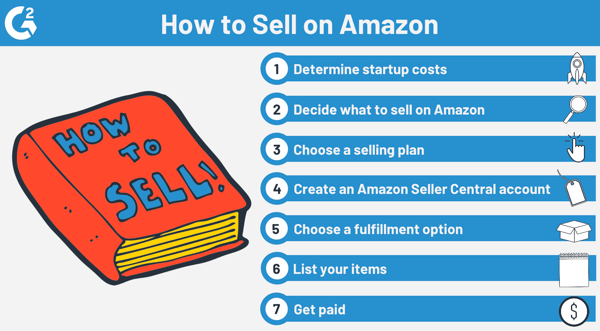The Facts About Why You Can Sell On Amazon Without Experience, Money Or Uncovered


The Definitive Guide for Sell on Amazon - LinkedIn

So as you go through each approach, do not feel that you need to choose simply one. Explore them all to see which finest fits your online offering objectives, whether that's simply selling on Amazon or constructing a multichannel empire. 1. View Details to source Amazon items. In retail arbitrage, you buy deeply discounted retail products and resell them on Amazon.

Retail arbitrage sellers are absolute pros when it comes to hunting up discounted and clearance handle local stores and matching them with best-sellers on Amazon. The trick is knowing what's offering well on Amazon on any given day, and for just how much. You likewise need to clearly comprehend your expense of selling that item on Amazon.
70+ Best-Selling Products on Amazon 2021 - Amazon Best Can Be Fun For Anyone
Thankfully, there are tools to assist you find lucrative bargains. Amazon prices apps are the retail arbitrage seller's secret weapon. These are mobile phone apps that let you scan product UPC codes and match them to current listings for that product on Amazon. These apps provide a wealth of info to help you price your products consisting of the average market price and buyer need, your shipping or Satisfaction by Amazon (FBA) costs, and your possible earnings.
You can likewise see detailed storage and shipping expenses if utilizing FBA for satisfaction. The FBA fulfillment option has its own costsbut handled right, it can be far more affordable and less time-consuming than handling fulfillment yourself. Pros and cons of retail arbitrage, On the professional side, retail arbitrage is an extremely cost-effective way for brand-new sellers to dip their toe into offering on Amazon.
The Best Guide To 5 Reasons To Sell On Amazon (And How To Do It) - Digital.com
If you use an Amazon prices app like the one above, you'll have a solid idea of revenue capacity so you can make clever buys. On the con side, it's hard to develop a consistent service because you're always chasing after affordable products in various stores. Plus, you need an excellent grasp of consumer demand cycles so you don't overbuy goods on the declinelike kids' backpacks when the back-to-school rush is over.
UNDER MAINTENANCE